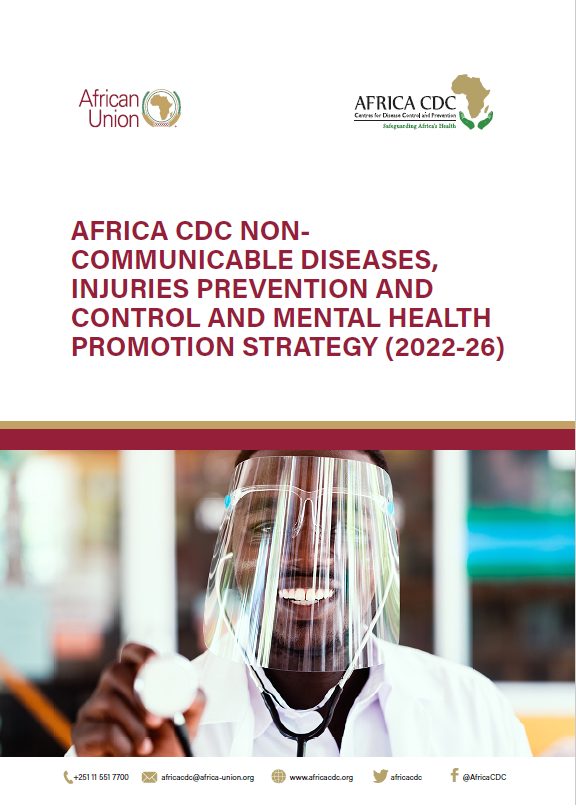Executive Summary
Non-communicable diseases (NCDs) & injuries and mental health conditions constitute a serious impediment to achieving the vision of Agenda 2063 to build an integrated, prosperous, and peaceful Africa driven by its own citizens. Each year, these conditions cause millions of premature deaths and disabled lives across Africa. These conditions also lead to annual economic loss of multiple billion US-Dollars. Their burden both in terms of disease morbidity/mortality and socio-economic impact is increasing. Often misleadingly construed as diseases of the affluent, evidence has shown higher prevalence and death rates from NCDs & injuries and mental-ill health among persons classified as having low socio-economic status. The effect of the above burden on the health indicators of the continent and the likely impediments through NCDs & injuries and mental health conditions to achieving the health aspirations of Agenda 2063 makes it necessary to significantly increase attention to their prevention and control across Africa. Such investments offer high returns for citizens and states from both an economic and health perspective.
Though the focus of public health policymakers in Africa is overwhelmingly on communicable diseases, premature deaths and disability from NCDs and mental health conditions, and their overall share of the disease burden, is increasing rapidly. The burden of non-communicable
diseases (NCDs) in sub-Saharan Africa alone grew by 67% between 1990 and 2017 (measured as disability adjusted life years – DALYs) reflecting a significant rise in the proportion of total DALYs attributable to NCDs from 18% to 30%. The burden of NCDs among African Union Member States
is higher than the global average. Meanwhile a significant burden of injuries endures. This led to the postulation that Africa has a triple burden of communicable and NCDs as well as injuries. The NCDs mostly responsible for the increase in the burden of disease in Africa include mental health
conditions, cardiovascular diseases and neoplasia. The rise of NCDs & injuries and mental health conditions are projected to accelerate: they are estimated to cause more premature deaths on the continent than all other conditions combined by 2030 and, by far, most death and disability
by 2063. NCDs & injuries and mental health should no longer be neglected in Africa and must be prioritized on health and development agendas especially by continental, regional and national public health institutes.
While cardiovascular diseases and cancers cause most premature deaths, less prominent conditions ranging from digestive diseases to sickle cell disease add considerable death and disability. Mental health conditions, especially depression and anxiety continue to account for a significant proportion of the burden of NCDs on the continent. Injuries cause about as much burden (measured in DALYs) as cardiovascular diseases.
Paradoxically, some of the NCDs are due to infectious diseases (eg cervical cancer from Human Papilloma Virus). The COVID-19 pandemic has had a negative effect on the prevention and control of NCDs & injuries and on mental health demonstrating the links between these reinforcing epidemics. Increased prevalence of hypertension, diabetes mellitus and other metabolic syndromes and their risk factors account for a significant percentage of the increase in the burden of NCDs. In addition to low physical activities and unhealthy diet, environmental pollution, smoking, alcohol and substance use are on the rise on the continent. The continent perhaps may be unique in having a double burden of obesity and undernutrition in a significant proportion among its citizens compared to other regions of the world. The drivers of these risk factors lie in systems outside the health sector, such as Africa’s trade, labor, education and transport systems. Conflict and environmental instability add important
risks, especially for injuries and mental health.
